.jpg)
The
ATLANTA CHINESE DANCE COMPANY
presents
China in Transition: Animal Folklore to City Life
Hwee-Eng Y. Lee, Artistic Director
Kerry Lee, Associate Director
Saturday, September 24, 2016 at 7:30pm
Sunday, September 25, 2016 at 2:00pm
Infinite Energy Theater
6400 Sugarloaf Parkway, Duluth, GA 30097
$24 General Admission | $17 Students and Seniors (65+)
Purchase Tickets Online
Box Office: 770-813-7600
NEW THIS YEAR:
All tickets are reserved seating.
Order early for the best seats!
Featuring professional guest artists from the
Qi Shu Fang
Peking Opera Company
from New York -
Master Qi Shu Fang herself will be making her Atlanta debut!
A visual feast of ancient history through modern times, Atlanta Chinese Dance Company's original production China in Transition: Animal Folklore to City Life explores the rich diversity of Chinese cultural history through dances depicting animals from Chinese folklore and follows in the footsteps of the millions of migrant workers who leave their children behind in the countryside to seek a better future in the city. The production features the colorful traditional costumes and dances that audiences have come to love in addition to a new modern thought-provoking finale that brings home the plight of the migrant workers - a moving testament to the resilience of the human spirit. Performances feature nearly 100 dancers, including professional guest artists from the acclaimed Qi Shu Fang Peking Opera Company from New York!
ABOUT THE PROFESSIONAL GUEST ARTISTS
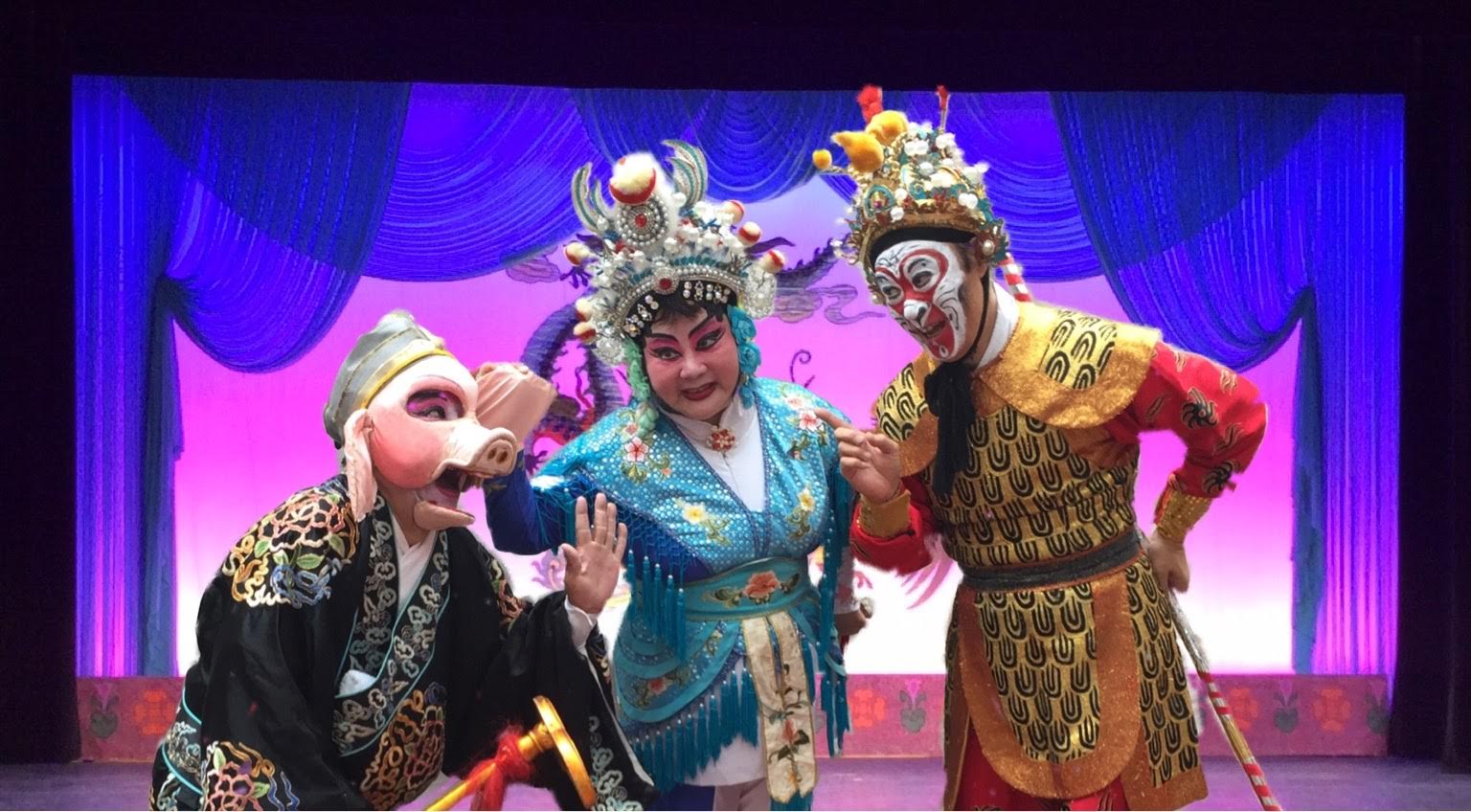 Atlanta
Chinese Dance Company is honored to feature professional guest
artists
Qi Shu Fang,
Ding Meikui, and Ren Yingxin
from New York City's Qi Shu Fang Peking Opera Company!
In honor of the Year of the Monkey, they will be performing
in the roles of Sun Wukong (Monkey King), Zhu Bajie
(Pigsy), and Baigujing (White Bone Spirit) in an
excerpt from
the classic Chinese mythological story
Journey to
the West.
Atlanta
Chinese Dance Company is honored to feature professional guest
artists
Qi Shu Fang,
Ding Meikui, and Ren Yingxin
from New York City's Qi Shu Fang Peking Opera Company!
In honor of the Year of the Monkey, they will be performing
in the roles of Sun Wukong (Monkey King), Zhu Bajie
(Pigsy), and Baigujing (White Bone Spirit) in an
excerpt from
the classic Chinese mythological story
Journey to
the West.
Qi Shu Fang, a 2001 National Endowment for the Arts National Heritage Fellow, is hailed as one of the preminent masters of Peking opera living in the United States. During the Cultural Revolution she was picked by Madame Jiang Qing, Chairman Mao's wife, to play the female lead in one of the eight national "model operas." Overnight she became a sensation throughout China. It is said that almost anyone from mainland China over the age of twenty-five can hum arias from her most famous operas. After immigrating to the United States in 1987, she and her husband Ding Meikui founded the Qi Shu Fang Peking Opera Company the following year to transplant their art to a foreign culture. The troupe has performed worldwide to critical acclaim, with appearances on Broadway, at Kennedy Center, and abroad in Poland and Canada. Atlanta Chinese Dance Company's China in Transition: Animal Folklore to City Life marks Qi Shu Fang's debut performance in Atlanta.
ABOUT THE PROGRAM
Act 1: Animal Folklore
The first half of the program explores the rich diversity of Chinese cultural history through dances depicting animals from Chinese folklore. Whether you are young or young at heart, this family friendly program is sure to bring a smile to your face! Here are a few examples of animals to be featured:
 |
Lion (Han Ethnic Majority) Traditionally, the lion dance is performed at important occasions such as Chinese New Year, business openings, and wedding ceremonies to usher in good luck and scare away evil spirits. There are two types of lion dance - southern lion and northern lion. The northern lion dance (pictured left) is rarely seen in Atlanta. |
|
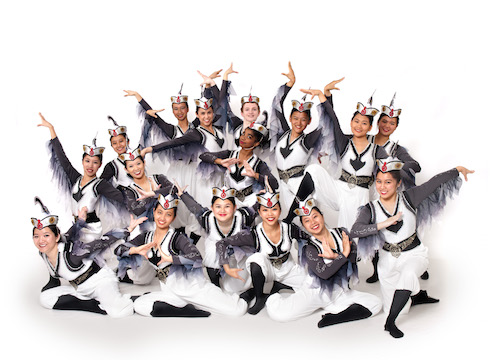 |
Swan
Geese (Mongolian Ethnic Minority) The vast grasslands of Inner Mongolia are home to swan geese, or hong yan. The traditional Mongolian ballad of the same name depicts their nostalgia as they migrate each winter through calm skies and harsh storms. The song also illustrates the warm hospitality of the Mongolian people. |
|
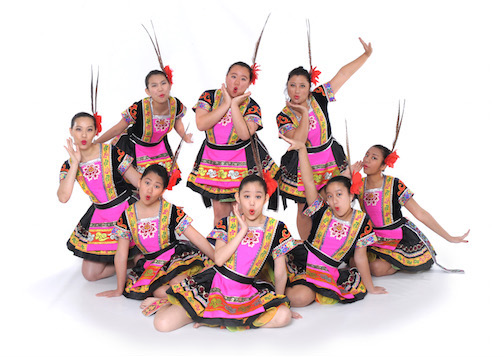 |
Golden Pheasants (Miao Ethnic Minority) The Miao people perform the golden pheasant dance on special occasions. It was said that the golden pheasant brought millets to the Miao people, which saved them from starvation. Hence they believe the golden pheasant is their lucky star and immortal idol. |
|
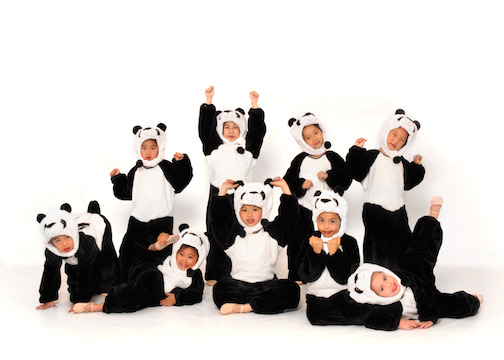 |
Pandas (Han Ethnic Majority) Regarded as a symbol of friendship and peace, China uses pandas as diplomatic gifts to other countries. This tradition dates back to the Tang Dynasty, when the empress Wu Zetian gave a pair of pandas to the Japanese emperor. |
Act 2: From Dynasties to the City
The second half of the program journeys from China's ancient dynasties to modern cities by way of the countryside, culminating in a mini dance drama about the millions of migrant workers who leave their children behind in the countryside to seek a better future in the city. Read the essay below for background information about our thought-provoking finale:
|
Why Atlanta Chinese Dance Company's Finale Won't Have Fans or Ribbons By
Kerry Lee
Our finale “Migrant Workers Go to the City” is an award-winning contemporary Chinese dance piece by Northeast Normal University that made a big splash in China in 2007. It comically and poignantly brings to light the joys and sorrows of the 253 million Chinese migrant workers who have left the countryside with little more than a checkered vinyl bag to seek a better life in the city – the largest mass migration in human history. I still remember watching the piece in my living room last year. Towards the end of the piece, the famously frantic “Flight of the Bumblebee” music (a curious choice for Chinese dance, I know!) ends abruptly and the dancers look like they are frozen in time. A folksy Chinese song finally breaks the silence, and inexplicably I can’t keep it together. Tears start flowing from my eyes, and I know immediately that I want to set this piece on the company. (In an uncanny coincidence, [ACDC Artistic Director] Ms. Lee found the Chinese folk dance piece “Paper Airplane Letter” about the migrant workers’ children just a few days letter. Left-behind in the countryside while their parents look for work in faraway cities, their innocent longing brought us both to tears — and we knew we had the last two pieces of the production set.) I’ve thought a lot about why “Migrant Workers Go to the City” spoke to me the way it did – why it prompted a visceral reaction from an American born, suburban Atlanta raised Chinese, worlds away from the subject. Even though I couldn’t make out the words of the folksy Chinese song until I got a hold of the lyrics much later, there was a strange familiarity in the complex emotions behind the impassioned stares in that silent moment. Homesickness. Injustice. (Failed) Expectations. Camaraderie. Willpower. Perseverance. Hope. It’s like, “I fought so hard, traveled so far, for this? You want me to do what?!” And then realizing that it’s my best option and sucking it up and doing it anyway, because I believe – I believe that it will get me where I want to be one day. It goes without saying that my life in no way resembles that of a migrant worker, but almost every line of the song seems like it was written about my own life here in America — especially the tumultuous years of my early 20s fighting my way into the professional dance world in New York City. It’s a universal desire to live a prosperous life – to make something of oneself, to lay the groundwork for a better future for the next generation. The journey, of course, is vastly different. As the book Scattered Sand by Hsiao-Hung Pai so poetically illustrates, Chinese migrant workers are scattered throughout the world — from the capital city of Beijing, to the mines of the Yellow River Basin, to the factories of Shenzhen (home to Apple supplier Foxconn's largest factory), and even abroad in Russia, Great Britain, and the United States. For more than two years I lived among them on East Broadway in Manhattan Chinatown, home to workers from China's Fujian province. I didn't know this until I started doing research on this piece, but I used to live right across the street from what once was the headquarters of snakehead Sister Ping — the villain/hero who helped thousands of Chinese migrants enter the US in urine-stenched cargo containers that journeyed at sea for twice as long as the Mayflower did, some 300+ years later (between 1984 to 2000). Sister Ping's family owns the restaurant that still stands at 47 East Broadway today, and its flashing LED sign told me the time and outside temperature whenever I looked out the window — which was multiple times a day, every single day. But I had no idea of its history, blissfully ignorant of the hardships endured by the people I bumped elbows with on the street everyday. Our production focuses on the workers who have migrated within China by train over the past few decades. Their decision to leave their children in the countryside seems so heartless, especially when voiced by an eleven year-old child in a paper airplane letter she hopes will reach her parents in the city. But unable to find enough work nearby and fearing that their children cannot enroll in public schools or have access to healthcare in the city (thanks to China’s “hukou,” or household registration, system), they find themselves stuck between a rock and a hard place. Sometimes they’re taken advantage of with unpaid wages and inhumane working conditions, looked down upon by “real” city folk as the lowest rung of society. Always, there are blood, sweat, and tears. But it’s their will to go on — their belief that if they endure the intolerable, life will be better for their children, and their children’s children — that I carry in my heart everyday. I think back to an eighth grade girl I met when I worked at Chen Dance Center in Manhattan Chinatown — born in America, returned to her grandparents in Fujian as an infant until she could go to school so that her parents could work without having to take care of her. I used to chat with her in the hallway as she waited for her little sister to finish dance class. Often she’d be carrying the groceries she’d just bought for her family and talk to her little sister, just a few years younger, as if she were her mother. I remember the day she told me she got into Brooklyn Tech, one of New York City’s elite magnet high schools with admission rates as low as the Ivy League. I never got to know the girl’s parents, but I like to imagine that the prospect of this very achievement was what kept them going everyday in a mind-numbing, dead-end job thousands of miles away from home — away from their very own daughter for the first few years of her life. “Migrant Workers Go to the City” won’t have the same extravagance that ACDC’s previous finales have been known for — there are no long sleeves, no ribbons, no fans. To be completely honest, the prospect of setting this piece scared Ms. Lee and me to death. (It still does.) We imagine that some people may feel it’s devoid of beauty. But is there anything more beautiful than the resilience of the human spirit and the universality of our dreams? Not in my book. Cheers to looking beyond the surface and into the depths of humanity!
|
ABOUT THE ATLANTA
CHINESE DANCE COMPANY
Founded in 1991 by Hwee-Eng Y. Lee, the Atlanta Chinese Dance Company
educates and entertains audiences about Chinese history and culture
through the art of Chinese dance. The company helped showcase
Atlanta to the world as performers in the opening and closing ceremonies
of the 1996 Olympic Games and have presented seventeen original
productions in Atlanta over the years, enchanting Chinese and
non-Chinese audiences alike. For more than ten years ACDC
presented the "Chinese variation" in the Atlanta Ballet's production of
"The Nutcracker" at The Fox Theatre.
Testimonial about Atlanta Chinese Dance Company's Past Sold-Out Production:
"This is a phenomenal, world-class, first-rate astounding
show. It is spectacular! The dancers are totally committed and
professional. Amazing attention to all details -- slides are gorgeous
and fun! It is complex in a stimulating way. It is beautiful and
cinematic. It has perfect rhythm and flow. It is moving and dynamic. A
million 'thank you's!' I only wish the whole world could see it!"
This program is supported in part by the
National Endowment for the Arts and Georgia Council for the Arts.
.jpg)
.jpg)
Photography by MV Photo Concepts and Stephanie Gough.
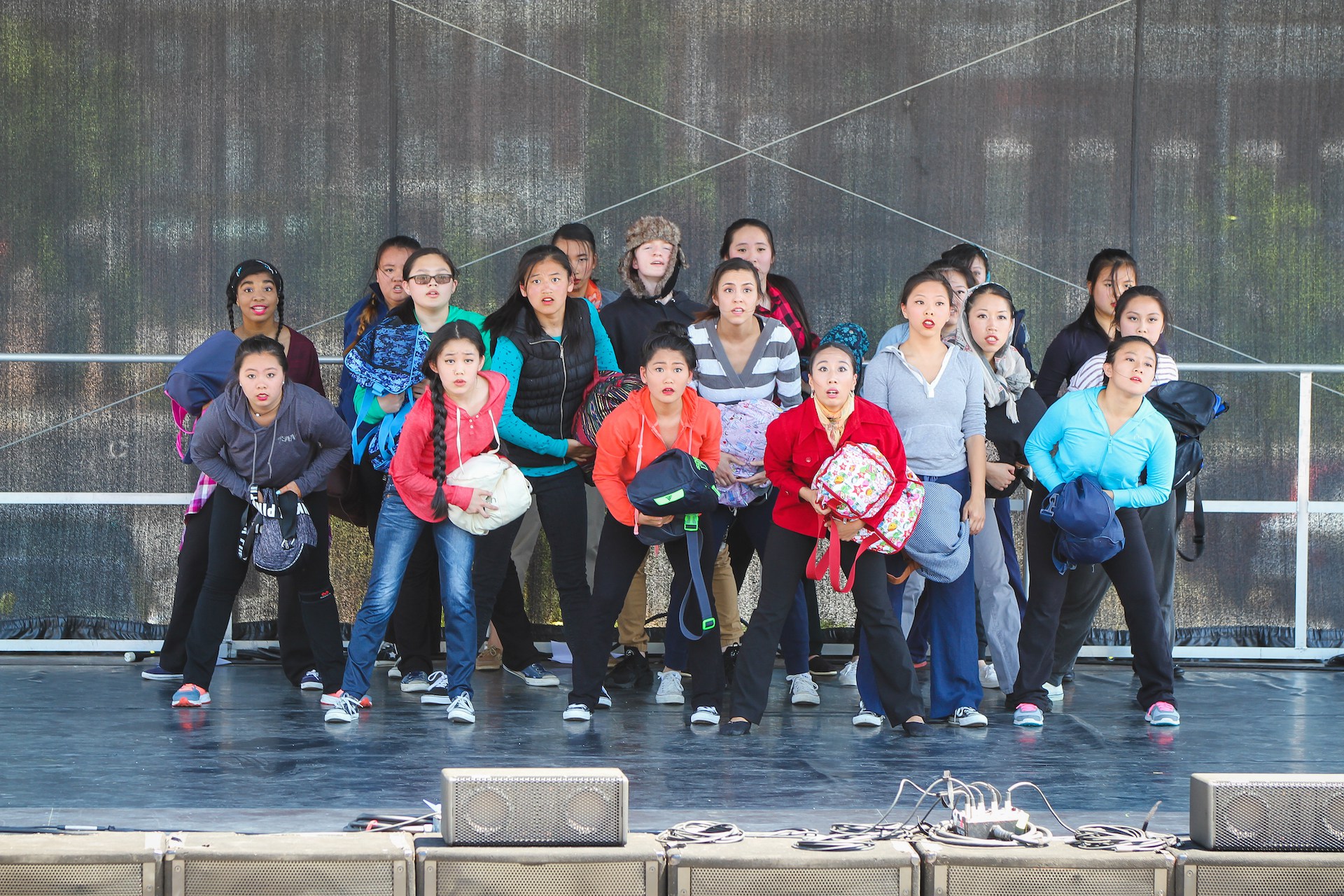 When
we get to the finale of the Atlanta Chinese Dance
Company's original production China in Transition:
Animal Folklore to City Life, you might be wondering if
we forgot our costumes – why after a stunning display of the
dazzling, colorful costumes from China that our audiences
often gush about, we’d choose to end the production in
street clothes. (And poor people’s unfashionable ones,
at that.)
When
we get to the finale of the Atlanta Chinese Dance
Company's original production China in Transition:
Animal Folklore to City Life, you might be wondering if
we forgot our costumes – why after a stunning display of the
dazzling, colorful costumes from China that our audiences
often gush about, we’d choose to end the production in
street clothes. (And poor people’s unfashionable ones,
at that.)